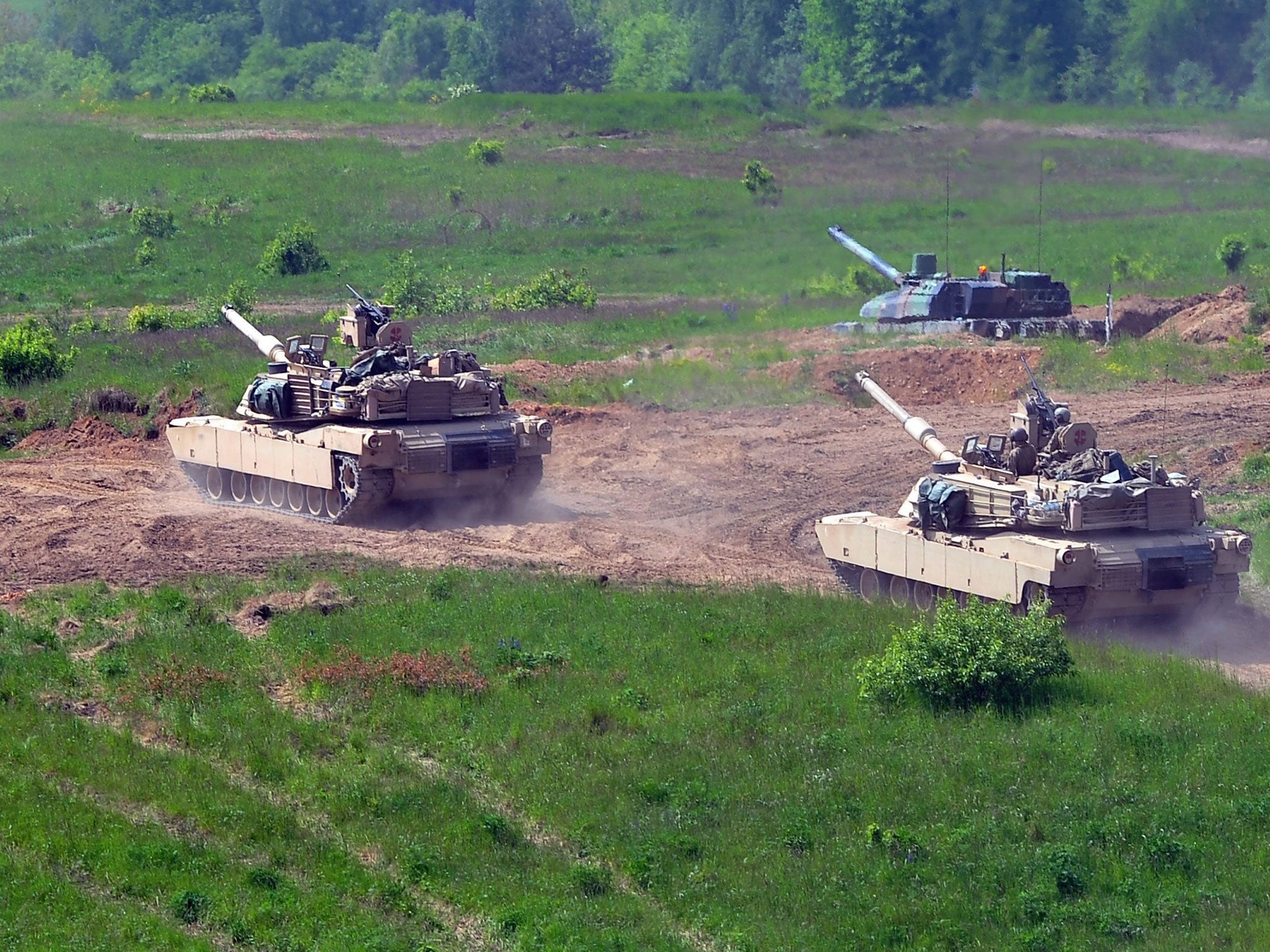Russian 'aggression' sees Poland rearm its military as minister warns: 'We must be ready'
The Nato member is bracing for the worst as Ukraine crisis goes on

Your support helps us to tell the story
From reproductive rights to climate change to Big Tech, The Independent is on the ground when the story is developing. Whether it's investigating the financials of Elon Musk's pro-Trump PAC or producing our latest documentary, 'The A Word', which shines a light on the American women fighting for reproductive rights, we know how important it is to parse out the facts from the messaging.
At such a critical moment in US history, we need reporters on the ground. Your donation allows us to keep sending journalists to speak to both sides of the story.
The Independent is trusted by Americans across the entire political spectrum. And unlike many other quality news outlets, we choose not to lock Americans out of our reporting and analysis with paywalls. We believe quality journalism should be available to everyone, paid for by those who can afford it.
Your support makes all the difference.Poland says it is bolstering its armed forces in the face of perceived Russian aggression, and says that is “has to be ready” for what it calls its greatest threat since the Cold War.
The Nato member, which borders the Russian military enclave Kaliningrad to the north and the authoritarian pro-Russian state Belarus to the east, has increased its defence spending by 18 per cent.
Speaking to Sky News in Warsaw, Poland’s defence minister Tomasz Siemoniak said his country must be prepared for Russia to look to expand in eastern Europe beyond its annexation of Crimea.
He said: “We can see that Russia is going in the direction of restoring the influence it had at the time of the Soviet Union.
“If that is the case then the situation is not over by any means with Crimea and it will move on to the territories of other countries, that will either be targeted by aggression or by some other measures taken by the Russian federation, so we have to be ready.”
Mr Siemoniak’s comments come as Russia issued a new travel blacklist for Western political figures in retaliation for economic sanctions imposed over the Ukraine crisis.
And in a further deterioration of diplomatic relations between Russia and the West, Moscow’s foreign minister Sergei Lavrov described the EU’s criticism of the travel bans as “absurd”.
“The reverse sanctions that were introduced applied to officials who have been most active in supporting the state coup that led to the start of persecution and discrimination of Russians in Ukraine," Lavrov told a news conference, confirming Russia had drawn up the list.
"With the EU introducing its restrictions on some 150 Russians, I think, we did the same for a considerably smaller number of EU member states' citizens," he said.
Kremlin spokesman Dmitry Peskov told reporters the bloc's reaction had been "difficult to understand".
Russia denies Western accusations of direct military involvement in east Ukraine and accuses the West of orchestrating protests in Kiev that led to the overthrow of a Ukrainian president favoured by Moscow in February last year.
Russia annexed the Crimea peninsula from Ukraine a month later, saying it must protect the rights of Russian-speakers there. It says the separatist uprising that followed in east Ukraine was provoked by fears over a threat to Russian-speakers from the new "illegitimate" authorities in Kiev.
More than 6,100 people have died in fighting between Kiev's forces and Russia-backed rebels in east Ukraine.
Additional reporting by agencies
Join our commenting forum
Join thought-provoking conversations, follow other Independent readers and see their replies
Comments